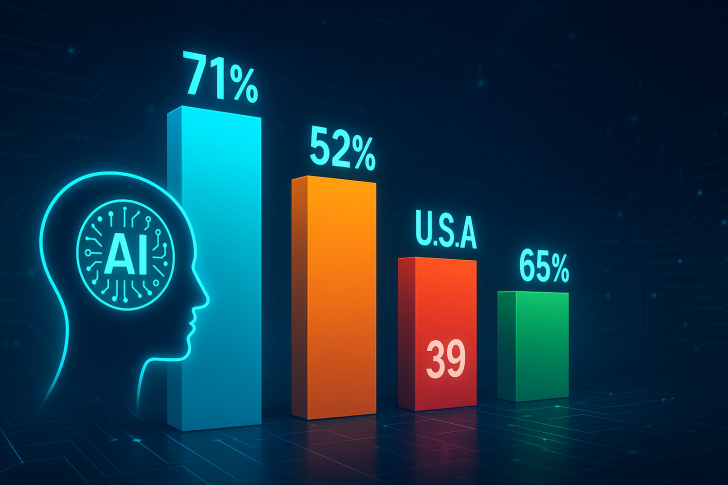⬤ Recent Stanford HAI research reveals a striking global divide in how people feel about artificial intelligence. While 83% of Chinese respondents believe AI does more good than harm, only 39% of Americans share that view. The gap is dramatic across regions: Indonesia (80%) and Thailand (77%) show strong confidence, while Canada (40%), the U.S. (39%), and the Netherlands (36%) remain deeply skeptical. This split is fueling debate about whether low American optimism stems from genuine concerns or politically-driven narratives.

⬤ The discussion has grown more urgent as governments explore new AI taxes—potentially targeting high-powered computing clusters, adjusting R&D credits, and taxing AI-generated work. While these policies aim to prevent monopolization and encourage responsible development, they could crush smaller startups operating on razor-thin budgets. Heavier taxation might force young companies out of business and push top talent toward more welcoming markets in China and Southeast Asia, threatening America's competitive edge just as AI becomes economically critical.
⬤ The Stanford data shows some improvement since 2022 in traditionally cautious countries—Germany and France both up 10 points, Canada and Britain up 8, and the U.S. up 4—but America still trails far behind the world's most enthusiastic adopters. This optimism gap matters: as AI becomes central to economic strategy, public attitudes could determine which nations lead and which fall behind in the race for technological dominance.
⬤ The widening divide in AI sentiment isn't just about perception—it's becoming a question of competitiveness, policy direction, and economic survival in an AI-driven world.
 Saad Ullah
Saad Ullah

 Saad Ullah
Saad Ullah


